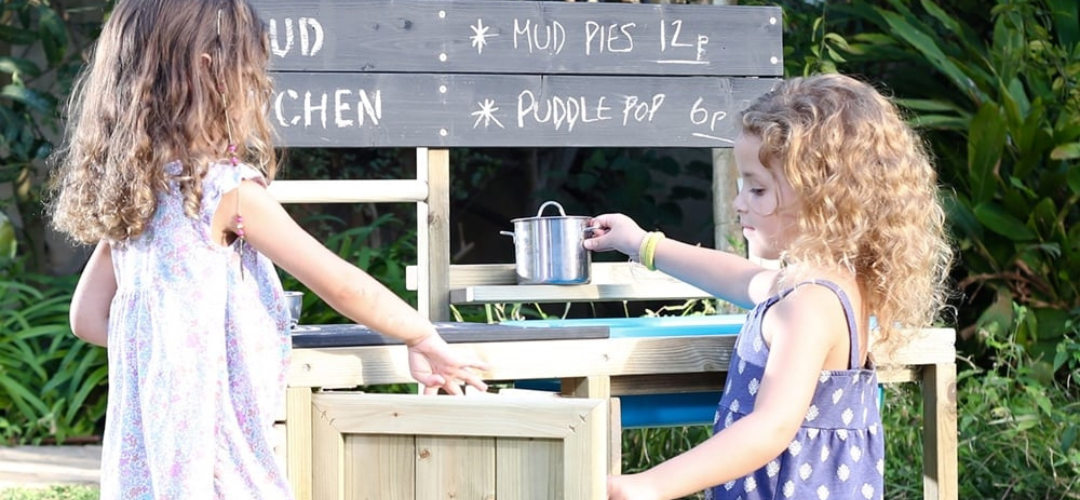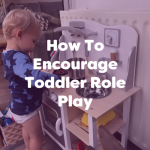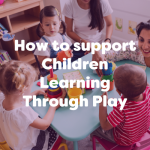Let’s rustle up some deliciously mouth-watering imaginary feasts!
What are the benefits of Play Kitchens for Children? Well, Children love playing different roles and scenarios in imaginative play. Play kitchens are a particularly popular resource for pretend play, as it benefits children and gives them the opportunity to imitate situations that they are familiar with. Whether they are playing the role of a head chef, waiter, kitchen porter or parent at home, play kitchens allow children to imagine themselves in new roles and cook up exciting scenarios.
Kitchen role play isn’t just a fun activity for children, it also benefits a child’s development! Young children learn through play and are always exploring and experimenting – so we’ve compiled a list of the key benefits that play kitchens give children.
Encourage your budding little chefs to cook up the ultimate fantasy banquet today!

The Benefits of Play Kitchens for Children
1. Creativity and Imagination
Kitchen role play is an exciting and fun activity, which stretches the children’s imagination and enriches their creativity. It gives children the chance to concoct their own imaginative recipes and explore different pretend ingredients. They enjoy experimenting with the various pretend utensils and appliances to create imaginative scenarios, either mimicking actions of adults they have seen or formulating their own uses for the objects they use.
2. Language and Communication
Role play gives children the opportunity to express themselves creatively and engage in storytelling. Children vocally enact the role that they are playing, which enhances their language development and communication. Kitchen role play widens a child’s vocabulary as they begin to learn the names of new objects and foods, whilst also using new verbs such as “cook” and “stir” and opposites such as “hot” and “cold”.
3. Social Skills and Teamwork
Play kitchens encourage the little ones to engage in play with other children, which enhances their social development. They create discussions around who will play what role, what they should cook and how they are going to do it. This inspires children to work as a team and cooperate so that they can get the job done quicker – encouraging them to share, take turns and listen to other people’s opinions and ideas about what to cook.
4. Planning and Organisation
Children typically enjoy the process of organising their pretend kitchens – determining different roles and organising different food types into sections. They tend to discover that kitchen play becomes a more enjoyable activity if their play kitchen is organised. Children may store their pretend ingredients away in the cupboards and neatly organise the plates and cutlery for their guests – all whilst planning what they are going to cook next and who will get what meal!
5. Life Skills
When children engage in kitchen role play, they are acting out real life occupations and situations that they are familiar with. This teaches children the basic cooking and cleaning concepts, which enriches their understanding of the world and develops their life skills. Whether they are pretending to set the table, wash the dishes or bake a cake, kitchen role play tends to heighten their empathy for others because it gives them an insight into what it would be like to cook in the kitchen or work as a chef. If your budget allows, why not consider incorporating a full kitchen set such as our Harmony Kitchen, Wooden Kitchen 5 piece set, toy washing machine and our wooden outdoor sink unit or pretend play sinks, to teach children responsibilities and life skills beyond “cooking”.
6. Independence and Self-Confidence
By providing children with their own play kitchen, it gives them a sense of independence, which increases their self-confidence. They fully adopt the role of working in a kitchen and become responsible for keeping it clean, organising the belongings and caring for the different items in the kitchen. When children undertake real-life kitchen roles and play superior roles such as head chefs, they also start to develop great leadership qualities as well.
7. Problem Solving
Kitchen role play enhances a child’s cognitive ability and problem-solving skills. If problems arise, such as a fork going missing, it forces children to come up with a solution – whether that is substituting the fork for something else or going out of their way to find the lost item.
8. Numeracy
Play kitchens also help to improve a child’s numeracy skills. Children may count how many plates they need, weigh ingredients or count how many minutes the food needs to be in the oven for, which enhances their mathematical learning while they play.
9. Visual Recognition
Play kitchens give children the opportunity to identify new objects and food. You can stock play kitchens with a variety of items, which also gives children the chance to categorise the different food types and utensils as well.
10. Healthy Food Choices
By promoting different types of pretend food, such as fruit, vegetables, eggs and meat, it encourages children to make healthier food choices. They imagine the food they have cooked in appetising scenarios, which tends to encourage them to try eating that food in real life as well.
11. Fine Motor Skills
Play kitchens also help to develop a child’s fine motor skills, as they are picking up accessories in their kitchen and using the tools in play situations.
Time to pop on those little aprons and whip up some yummy imaginary goodness!
Final Thoughts
Still looking for the perfect pretend play kitchen? Explore our complete range of Role Play Kitchens Home Corner Resources and Outdoor Role Play Equipment on our website to inspire the children’s imagination today – from full wooden kitchen sets and cookers to play accessories and food! You can also take kitchen role play to the next level by engaging children in the sensory excitement of Mud Kitchens!
How do your children use their play kitchens? Let us know their favourite role play activities via our Facebook or Instagram! Simply tag us or use the hashtag #ExploreWithEYR






